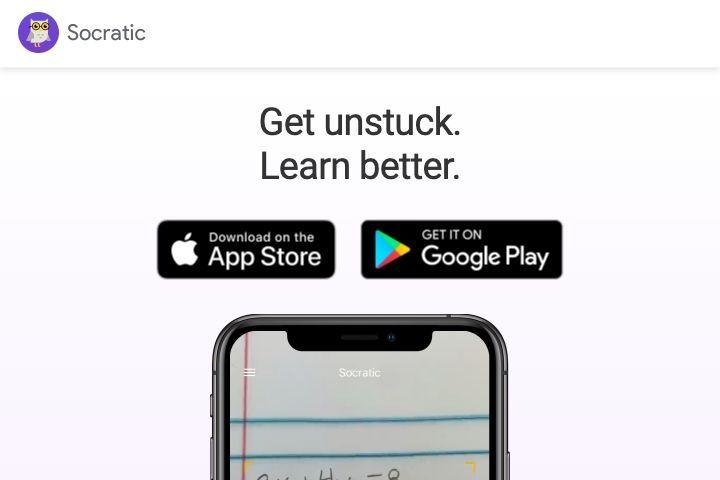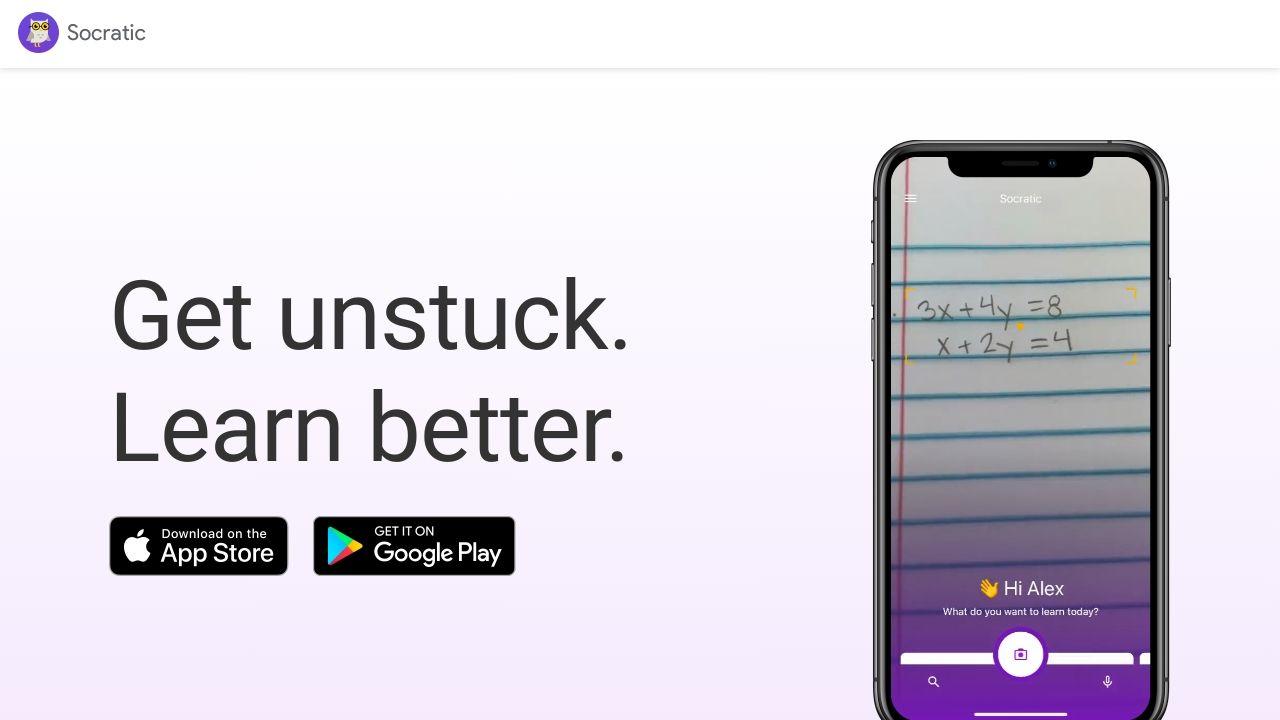Tools don't just have to do work for students; when used correctly can be augmentative.
It's already back-to-school season, and assignments are ramping up fast. If you're still operating with summer brain, it can be daunting to get back into the groove -- something AI can help with.
Also: 6 ways AI can help you ace finals - for free (without plagiarizing)
There are a plethora of AI tools that students can tap into today to make studying more effective. When used properly, these tools don't replace students' ability to do work, but help take the burdensome tasks off their plates so they can jump straight into preparing.
Identifying the right tools and use cases is the key to using AI effectively for schoolwork. Since there are so many tools, I compiled the list below from months of testing to make your life easier.
ChatGPT is at the top of my list because of its multiple potential use cases that can improve a student's workflow.
OpenAI's chatbot launched in November 2022, unleashing a generative AI craze because its writing, coding, and reasoning capabilities captured people's attention globally. Since then, the bot has become even better, undergoing major updates that make it better suited for student use.
Also: How to use ChatGPT to write your resume
For example, ChatGPT can browse the internet and, as a result, has information on all current events and sites. ChatGPT is also a powerful multimodal tool that can ingest inputs other than text, including documents, files, and images, that students can use to summarize documents, transcribe handwritten notes, simplify textbook passages, and more. It can also produce realistic images, text, charts, and other graphics, which could be helpful for visual learners.
Most recently, ChatGPT introduced Study Mode, a new free feature that uses the Socratic method to keep you engaged while learning about a concept. I tried it, and rather than just giving me the answers, like ChatGPT can, Study Mode quizzed me on questions I got wrong and pushed me to tackle a problem step-by-step, so that I learned the answer along the way.
ChatGPT also has the advanced writing, coding, and mathematical abilities it's known for, making it a great assistant for all subject assignments, including writing and editing essays, solving and explaining math problems, and generating and debugging code.
Some other ways you can use ChatGPT in your studies are:
To find the best way to use ChatGPT for your workflow, I recommend applying it to the use cases discussed above and experimenting.
It is also worth acknowledging that ChatGPT is only one of many AI chatbots on the market. Some other capable and competitive chatbots include Google's Gemini and Anthropic's Claude (which has similar education-specific features and its own Learning Mode), each holding advantages. Ultimately, the bots will achieve similar results, so go with the interface you are used to or prefer.
Also: Google's AI Mode just got more helpful - and easier to access
It is also worth taking advantage of some of the deals available for students, which give free access to premium AI subscriptions with higher limits and features.
For instance, Google is giving US students free access to its AI Pro Plan, which includes Deep Research, Veo 3, Jules, and more, for 12 months.
Google's NotebookLM is an experimental AI notebook combining the power of large language models (LLMs) with your notes and content, creating a searchable notebook grounded in your data. You can use it to further your understanding of a topic, generate summaries, answer questions, and even discuss your content with you.
NotebookLM is also home to the viral Audio Overviews feature, which lets users convert their imported content into an engaging podcast featuring two AI hosts discussing their notes. Some helpful use cases for this feature include listening to your content on the go and breaking down dense and complicated topics conversationally. Google just upgraded Audio Overviews to create content in over 50 languages.
Also: I used NotebookLM for an entire month - here's why it really is a game changer
Just be sure not to rely entirely on the podcast's takes, especially if you're using the tool for school. While the Overviews only pull from content you upload, which does minimize hallucinations, there's no guarantee they are interpreting that source entirely correctly or thoroughly, especially if you've uploaded a long and complex text. Fact-check and confirm where needed.
NotebookLM is free to access, but there is a premium NotebookLM Plus tier. However, with Google's special aforementioned AI Pro Plan offer, students can access the premium tier at no additional charge. The premium NotebookLM plan offers subscriber-only features and five times higher usage limits across some of NotebookLM's best elements, including Audio Overviews, notebooks, queries, and sources per notebook.
The free Grammarly extension is so helpful that I even included it in my AI tools for work roundup because I use it every day. The beauty of this tool is that it uses AI to show how your work can be enhanced rather than doing it for you. The application runs in the background and catches small mistakes that are easy to miss.
Also: Grammarly to roll out a new AI content detector tool. Here's how it works
Whether writing an essay in Google Docs or an email in Gmail, Grammarly will scan your text and detect spelling and grammatical errors. The tool also suggests edits for the syntax of your text, offering ways to rephrase, rewrite, adjust tone, and more. The results provide more polished work and an opportunity to learn from the edits.
You can also use AI chatbots for copyediting by copying and pasting your text into the chatbot's search bar. However, this technique typically requires switching platforms, while the Grammarly extension runs in the background as you continue to work.
Also: Scammers have infiltrated Google's AI responses - how to spot them
The company also just released new AI agents that automatically scan for citations while you work, among other tasks. ZDNET hasn't tested this in-house yet, though, and LLMs have been known to fabricate links, sources, and even experts, so again, be sure to check your work -- you can't automate everything.
I used Quizlet from middle school through college as a study tool to help me remember information for exams. The platform has used AI for more than six years to power some of its study features, such as its Learn mode, and Quizlet recently added more AI to improve its offerings, solving every issue I ever had with the platform.
Quizlet's core feature is its study set, which includes terms and definitions that students can use for different learning exercises and styles, such as flashcards (my favorite), matching columns, and more. Building those study sets used to take hours of manual input. Now, AI can do it for you.
All a teacher or student has to do is input their notes, whether in the form of a PDF, image, or document, and Quizlet automatically builds the study set they can use to study.
Also: How to use ChatGPT to write an essay
Students can also browse the millions of study sets created by other users. This option often gave me study sets about a topic or even a specific textbook during my education. Quizlet also has fun, gamified learning features, such as Blast and Categories, to help make the information stick.
Although younger learners can benefit from AI chatbots, such as ChatGPT, there are concerns about giving children access to the open internet. Socratic by Google is a great alternative if you are a concerned parent.
With the Socratic app, students can type in any question about what they are learning in school or upload their worksheets. The app will generate a conversational, human-like response with unique graphics and even related YouTube video links.
The app doesn't pump out answers or generate essays. Instead, Socratic is an intelligent learning tool that gives step-by-step explanations and instructions for students to get answers.
Also: How Google Socratic can help you with your homework
Socratic also blocks inappropriate questions from being answered to give parents peace of mind.
The tool isn't limited to younger people. Google refers to it as a "learning app from Google that helps high school and university students." However, due to its functionality, I would say it's better suited for younger learners because of its limits and fun graphics.


